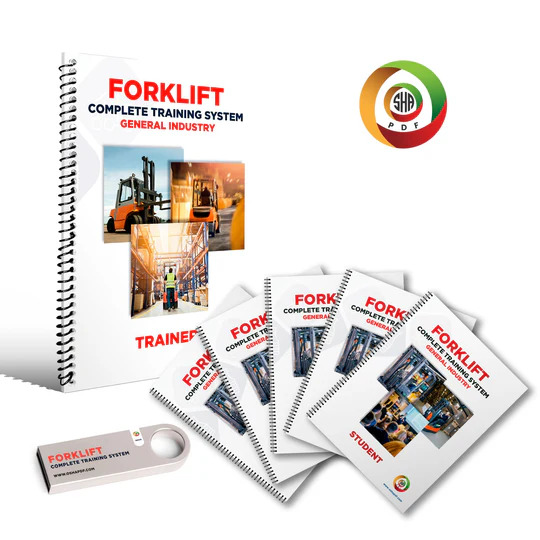In workplace safety, compliance with Occupational Safety and Health Administration (OSHA) standards is most crucial to create a secure and healthy working environment. Not complying with OSHA regulations can lead to severe consequences and fines. Among OSHA’s crucial regulations are those governing forklift operations, underlining the necessity of relevant training to cur risks and sustain a secure work environment.
The Occupational Safety and Health Administration (OSHA) requires forklift operators to be trained and necessitates employers to “certify” that the operator working for them has been relevantly trained and evaluated. For the most part, OSHA is not in the business of certifying, and accrediting. Or approving trainers or training programs regardless of, whether the training programs are delivered in a classroom or online. The only exception to this rule is OSHA’s 10- and 30-hour outreach programs. On the flip side, OSHA is neck-deep in the business of compliance.
This blog post provides a detailed overview of OSHA’s rules for forklift training, giving clarity to organizations seeking compliance. Let’s get right into understanding OSHA’s Forklift Training Rules.
Age Requirement for Forklift Operators
OSHA requires that individuals should be at least 18 to operate a forklift in non-agricultural operations. This age limitation is established to ensure operators have the maturity and responsibility necessary for safe forklift operation.
Driver’s License Requirement for Forklift Drivers
Unlike driving a car, as per OSHA requirements, forklift operators are not required to have a valid state driver’s license. The emphasis is on specialized training and certification customized to the specific forklift used in the workplace.
Training Frequency for Forklift Operators
According to forklift checklist OSHA additional training is required in the event of a poor evaluation, alterations in the work environment, or a shift to a different type of forklift. This flexibility lets businesses customize training schedules to their specific needs.
Recertification Interval for Forklift Drivers
OSHA requires the assessment of every forklift operator a minimum of once every three years to ensure that operators retain proficiency in their skills. And are aware of any updates or modifications in safety protocols.
New Lift Trucks and Recertification
Operators don’t require recertification when shifting to a newer model of the same type of forklift. However, introducing a completely new type of forklift mandates thorough training before operation. It is to ensure operators can handle the specific characteristics of the new equipment.
Hand Pallet Jacks Certification
OSHA places small hand pallet jacks in the category of industrial trucks, underlining the need for certification. Despite their compact size Hand Pallet Jacks are found to cause harm if not operated correctly.
Forklift Operator Safety Training Programs
Organizations are encouraged to invest in thorough forklift operator safety training programs for complying with forklift checklist OSHA. Training needs to encompass theoretical knowledge and practical skills, to ensure operators are well-equipped for real-world scenarios.
Summing Up
Summing up, keeping up to OSHA compliance is necessary for safeguarding employees and the overall success of your business. Make regular visits to OSHA’s website for the latest rules and regulations.
